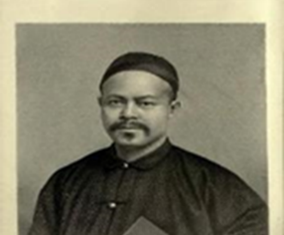Please join us for a virtual presentation by Dr. Caylin Carbonell. Dr. Carbonell is a New England Regional Fellowship Consortium (NERFC) fellow who conducted research at the CMCH this past summer.
In seventeenth- and eighteenth-century Connecticut, the household was the primary site of the economy. Although we often think of white male household heads as the principal movers and shakers of the colonial economy, household economies depended equally on the collaborative labor of a mixed group of dependents, including their wives and children, as well as indentured, hired, and enslaved laborers. However, since surviving records from the colonial period were primarily authored by white male household heads, the labor of these other household members often remains hidden from historians.
Using these same account books as well as other family papers and records that survive in the collections of the Connecticut Museum of Culture and History, this presentation will consider how we might use these sources to locate the collaborative and often hidden labor of women, children, and both free and unfree household laborers. This talk will offer an overview of the collaborative labor that drove the early New England economy as well as an introduction to strategies that researchers might take to uncover the histories of those individuals often thought to be missing from colonial archives.
This virtual program is free. To secure a spot, register now. You will receive an email confirmation with the Zoom link attached, and we will send you a reminder on the day of the program.
Questions? Contact Jennifer Busa, Public Programs and Special Events Coordinator, at jennifer_busa@chs.org.
About the Speaker
Caylin Carbonell is a historian of early America who focuses on unfreedom and domestic labor in colonial New England. As an NEH fellow with the Omohundro Institute of Early American History & Culture, she is working on her first book manuscript, which approaches issues of race, gender, and power in colonial North America through innovative archival practices that reveal grounded stories of everyday life. Previously, she received her Ph.D. in History from William & Mary in 2020 and served as the Hench Post-Dissertation Fellow at the American Antiquarian Society.
If you would like to make a donation to help the CMCH keep history alive, please click here. Or, to learn about the benefits of museum membership, click here!




